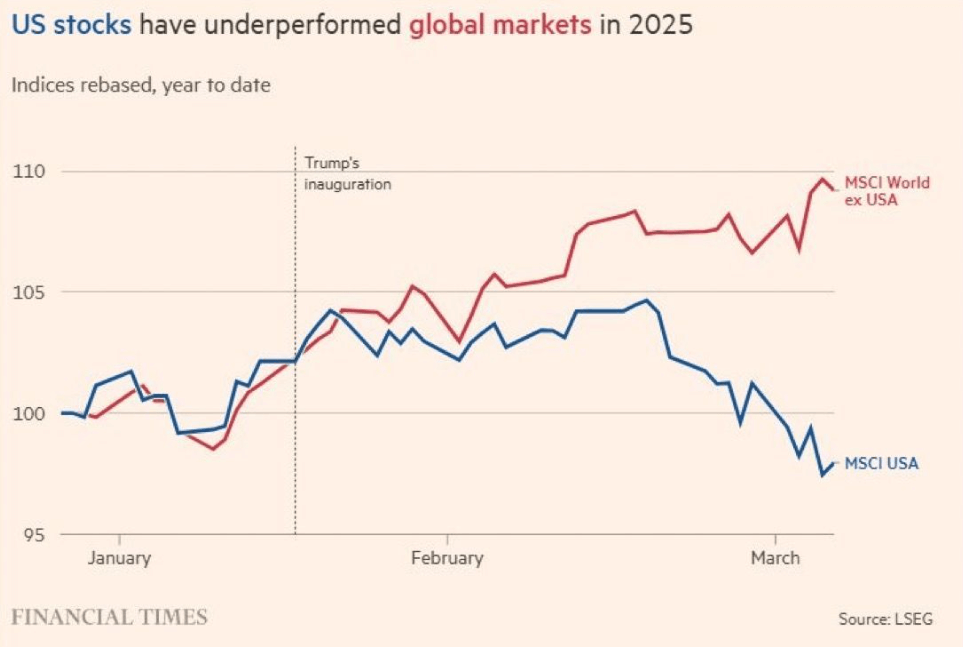The United States has reported an extraordinary two-month trade deficit in goods amounting to $301 billion, driven by corporate strategies to preemptively navigate expected tariffs, as per a recent financial analysis.
This trade gap reached unprecedented heights during January and February, with monthly deficits recorded at $153.3 billion and $147.9 billion, respectively, significantly exceeding the prior peak witnessed during the early days of the trade conflict under the Trump administration.
The magnitude of these deficits highlights growing apprehension regarding tariff policies that impact roughly $240 billion in annual auto imports, with nearly half of those coming from Mexico.
This surge in imports, which includes significant amounts of industrial materials like oil, LNG, steel, and gold, has substantially increased the non-petroleum goods deficit, revealing structural weaknesses within the US trade system.
According to one report, US financial markets have diverged from international equities amid ongoing trade disruptions.


Since the inauguration of President Trump in January, US stocks, represented by the MSCI USA index, have seen a near 2% decline year-to-date. In contrast, global equities, as measured by the MSCI World ex USA Index, have risen by about 9%.
This divergence heightens investor anxieties regarding ongoing economic disruptions and the impact of tariffs on corporate profitability and growth.
In light of these circumstances, physical gold acquisitions in the US have soared, leading to a more than 100% increase in inventories year-to-date and catapulting gold prices to roughly $3,100 per ounce. This trend indicates a widespread effort to hedge against extended economic uncertainty, echoing patterns observed during past recessions.
Given that Bitcoin shows a strong correlation with US markets while being distinct from gold, the state of the US economy could significantly influence Bitcoin’s performance in the coming months. Unlike gold, Bitcoin does not behave like a traditional risk-on asset.
While many proponents of Bitcoin envision it as the future of the global economic system, its valuation will be notably dependent on US economic conditions in 2025.
